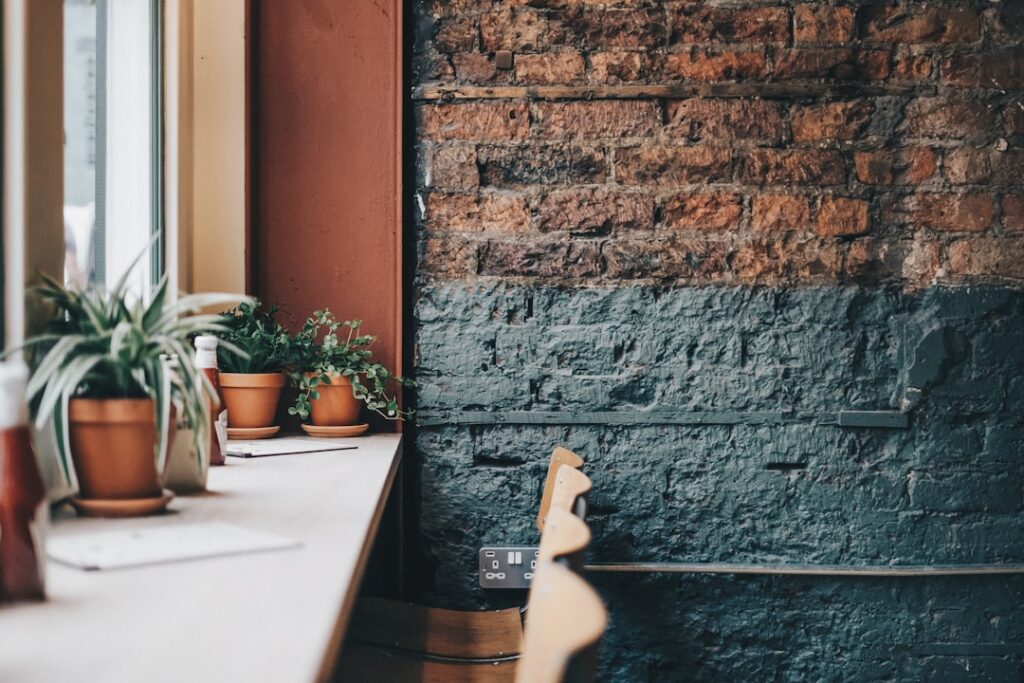Dubai, a city synonymous with luxury and innovation, has emerged as a global hub for design and architecture. The rapid urban development and the influx of international businesses have created a vibrant market for interior design professionals. As a result, the demand for skilled interior designers has surged, prompting educational institutions to offer specialized courses tailored to meet the needs of this dynamic industry.
Interior design courses in Dubai not only equip students with the necessary skills and knowledge but also immerse them in a culturally rich environment that fosters creativity and innovation. The curriculum of these courses often encompasses a blend of theoretical knowledge and practical application, covering essential topics such as space planning, color theory, materials selection, and sustainable design practices. Students are encouraged to explore their creativity while adhering to the principles of functionality and aesthetics.
With a diverse student body representing various nationalities, these courses also promote cross-cultural understanding and collaboration, essential traits for any designer working in a globalized market. The unique blend of tradition and modernity in Dubai serves as an inspiring backdrop for aspiring interior designers, making it an ideal location for pursuing education in this field.
Key Takeaways
- Interior design courses in Dubai offer a range of options for individuals interested in pursuing a career in this field.
- When choosing the right interior design course, it is important to consider factors such as curriculum, faculty expertise, and facilities available.
- Accreditation and recognition of interior design courses by relevant industry bodies and educational institutions can enhance the credibility and value of the qualification.
- There are diverse career opportunities in interior design in Dubai, including residential, commercial, and hospitality design, as well as opportunities in retail and exhibition design.
- Specializations and electives in interior design courses allow students to focus on areas such as sustainable design, lighting design, or furniture design, based on their interests and career goals.
Choosing the Right Interior Design Course
Selecting the appropriate interior design course is a critical step for anyone aspiring to enter this competitive field. Prospective students should consider several factors when making their choice, including course content, duration, teaching methodology, and the institution’s reputation. Some programs may focus more on technical skills, while others might emphasize conceptual development and creative thinking.
It is essential to align one’s personal interests and career goals with the course offerings to ensure a fulfilling educational experience. Additionally, students should evaluate the qualifications and experience of the faculty members. Instructors with industry experience can provide invaluable insights and mentorship, helping students navigate the complexities of the interior design landscape.
Furthermore, prospective students should look into the facilities available at the institution, such as design studios, workshops, and access to industry-standard software. A well-equipped learning environment can significantly enhance the educational experience, allowing students to experiment with their designs and develop their portfolios effectively.
Accreditation and Recognition of Interior Design Courses

Accreditation plays a vital role in determining the quality and credibility of interior design courses. In Dubai, several institutions offer programs that are recognized by local and international accrediting bodies. Accreditation ensures that the course meets specific educational standards and provides students with a qualification that is respected within the industry.
When choosing a course, it is crucial to verify its accreditation status, as this can impact future employment opportunities and professional recognition. Moreover, some programs may offer affiliations with professional organizations such as the American Society of Interior Designers (ASID) or the International Interior Design Association (IIDA). These affiliations can enhance the value of the qualification and provide students with access to additional resources, networking opportunities, and industry events.
Graduating from an accredited program not only boosts a student’s resume but also instills confidence in potential employers regarding the quality of education received.
Career Opportunities in Interior Design in Dubai
The interior design sector in Dubai is thriving, offering a plethora of career opportunities for graduates. With numerous high-profile projects underway, including luxury hotels, residential complexes, and commercial spaces, there is an increasing demand for skilled interior designers who can bring innovative ideas to life. Graduates can find employment in various settings, including design firms, architectural companies, real estate developers, and even as independent consultants.
In addition to traditional roles such as interior designer or space planner, there are specialized positions available in areas like sustainable design, hospitality design, and retail design. The rise of eco-consciousness has led to a growing need for designers who can create environmentally friendly spaces that adhere to sustainable practices. Furthermore, as Dubai continues to position itself as a global tourism destination, opportunities in hospitality design are particularly abundant.
Designers are tasked with creating unique experiences that reflect the city’s cultural diversity while meeting the expectations of an international clientele.
Specializations and Electives in Interior Design Courses
Interior design courses in Dubai often offer a range of specializations and electives that allow students to tailor their education according to their interests and career aspirations. Common specializations include residential design, commercial design, exhibition design, and sustainable design. Each specialization delves deeper into specific aspects of interior design, equipping students with specialized knowledge and skills that can set them apart in the job market.
Elective courses may cover topics such as lighting design, furniture design, or digital rendering techniques. These electives provide students with opportunities to explore niche areas within interior design that may align with their passions or career goals. For instance, a student interested in sustainable practices might choose electives focused on green building materials or energy-efficient design strategies.
By offering a diverse array of specializations and electives, institutions empower students to develop a unique skill set that reflects their individual interests while preparing them for various career paths within the industry.
Practical Experience and Internships in Interior Design Courses

One of the most valuable components of interior design education is practical experience. Many courses in Dubai incorporate hands-on projects that allow students to apply theoretical knowledge in real-world scenarios. These projects often involve collaboration with local businesses or community organizations, providing students with insights into client interactions and project management.
Such experiences are crucial for developing problem-solving skills and understanding the complexities of working within budgetary constraints and client expectations. Internships are another essential aspect of practical training in interior design courses. Many institutions have established partnerships with leading design firms and companies in Dubai, facilitating internship placements for students.
These internships provide invaluable exposure to the industry, allowing students to work alongside experienced professionals on live projects. Interns gain firsthand experience in various aspects of the design process, from initial concept development to final execution. This exposure not only enhances their resumes but also helps them build a professional network that can be instrumental in securing future employment.
Industry Connections and Networking Opportunities
The interior design landscape in Dubai is characterized by its dynamic nature and rapid growth. As such, establishing connections within the industry is crucial for aspiring designers. Many educational institutions recognize this need and actively facilitate networking opportunities for their students.
This may include hosting guest lectures from industry leaders, organizing workshops with practicing designers, or arranging site visits to ongoing projects. Networking events provide students with platforms to interact with professionals from various sectors within the interior design industry. These interactions can lead to mentorship opportunities, collaborations on projects, or even job offers upon graduation.
Additionally, many institutions encourage participation in local design competitions or exhibitions where students can showcase their work to potential employers and clients. Building a robust professional network during their studies can significantly enhance graduates’ prospects as they transition into the workforce.
Continuing Education and Professional Development in Interior Design
The field of interior design is continually evolving due to advancements in technology, changes in consumer preferences, and emerging trends in sustainability and wellness design. As such, continuing education is essential for professionals looking to stay relevant in this competitive landscape. Many institutions in Dubai offer workshops, seminars, and short courses aimed at helping interior designers enhance their skills or learn about new developments in the field.
Professional development opportunities may also include certifications from recognized organizations that focus on specific areas such as sustainable design or project management. These certifications not only bolster a designer’s credentials but also demonstrate a commitment to lifelong learning—a quality highly valued by employers. Furthermore, attending industry conferences or trade shows can provide insights into emerging trends and innovations while offering additional networking opportunities with peers and industry leaders.
In conclusion, pursuing an interior design course in Dubai presents numerous opportunities for aspiring designers to develop their skills and establish successful careers in a thriving market. By carefully selecting courses that align with their interests and goals while taking advantage of practical experiences and networking opportunities, students can position themselves for success in this dynamic field.
If you are interested in pursuing a career in interior design, taking Interior design courses in Dubai can be a great way to kickstart your journey. These courses will provide you with the necessary skills and knowledge to excel in the field. In addition, learning about effective workspace design, as discussed in this article, can also be beneficial for interior designers as it helps in creating functional and aesthetically pleasing spaces. Furthermore, understanding the importance of stylish office chairs, as highlighted in this article, can also enhance your ability to design comfortable and ergonomic work environments for your clients.
FAQs
What are interior design courses?
Interior design courses are educational programs that teach students the principles and techniques of designing and decorating interior spaces. These courses cover topics such as color theory, space planning, furniture design, and architectural detailing.
What do interior design courses in Dubai offer?
Interior design courses in Dubai offer a comprehensive curriculum that combines theoretical knowledge with practical skills. Students learn about the latest trends in interior design, sustainable design practices, and the use of technology in design.
What are the career opportunities for interior design course graduates in Dubai?
Graduates of interior design courses in Dubai can pursue careers as interior designers, space planners, furniture designers, and design consultants. They can work in design firms, architectural firms, real estate companies, and retail establishments.
Are there any specific requirements to enroll in interior design courses in Dubai?
The specific requirements to enroll in interior design courses in Dubai may vary depending on the institution. However, most programs require applicants to have a high school diploma or equivalent, a portfolio of their work, and a strong interest in design.
What are the benefits of studying interior design courses in Dubai?
Studying interior design courses in Dubai provides students with the opportunity to learn from experienced professionals in a dynamic and multicultural environment. Students also have access to state-of-the-art facilities and resources to enhance their learning experience.


